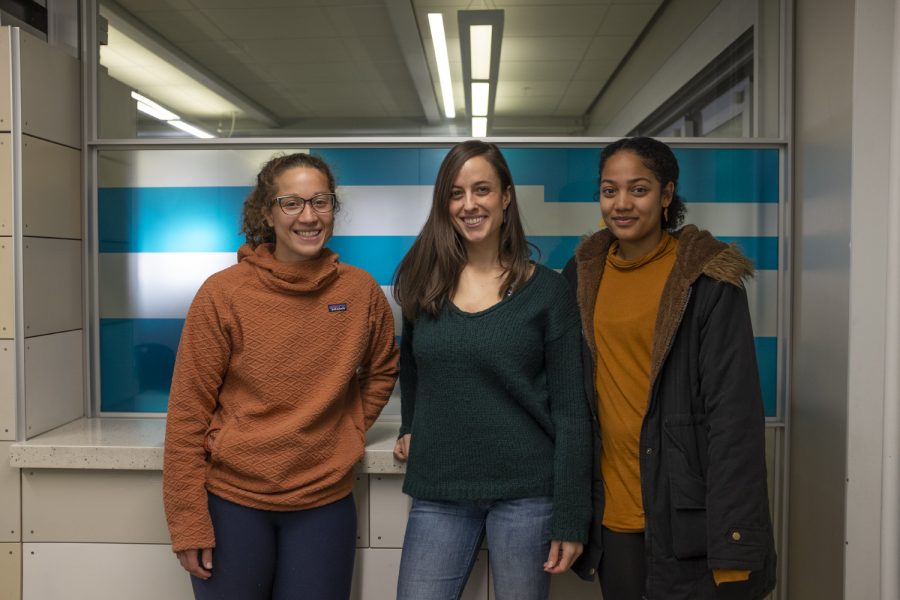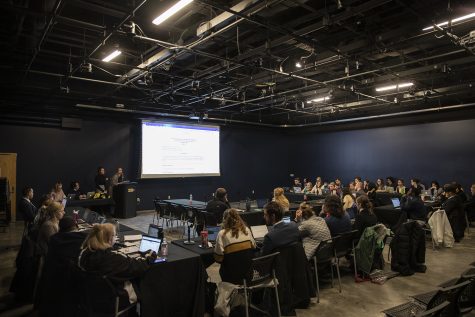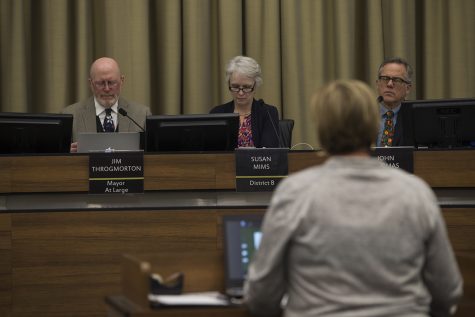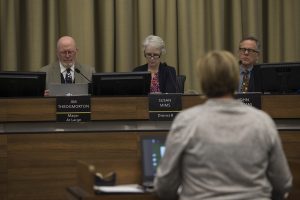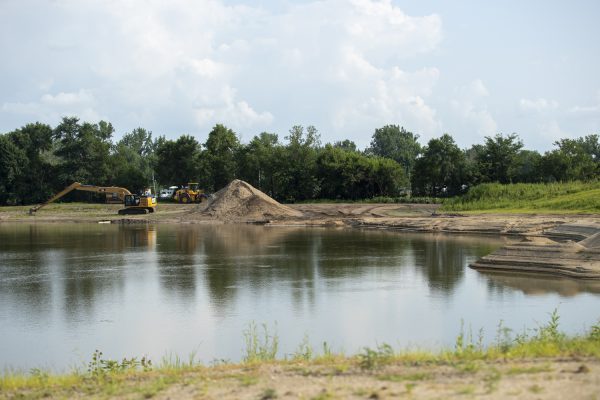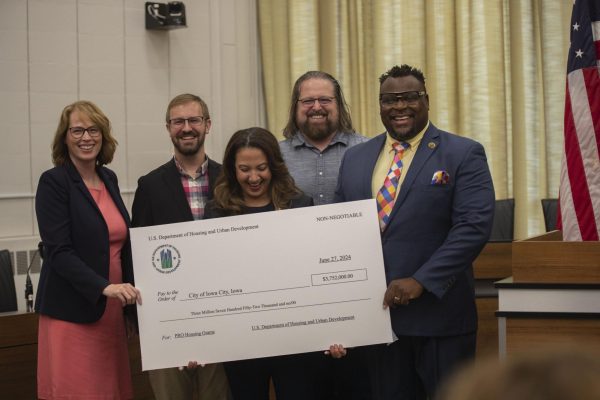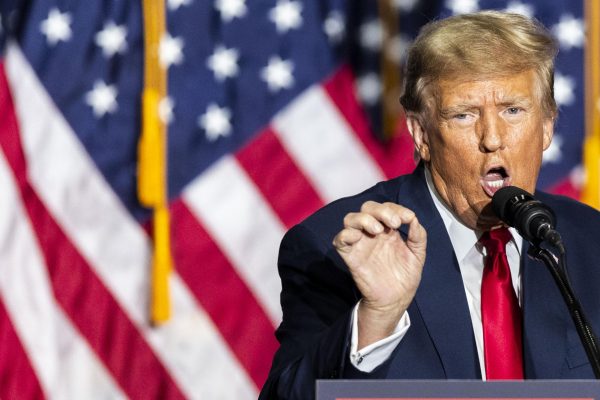Mighty Earth aims to educate candidates on biofuel
One group’s presence in Iowa City aims to help disseminate information about the use of biofuels to presidential candidates.
UI student Camryn Carpenter (left), Mighty Earth field organizer Anya Fetcher, and UI student Aluna Olaniyi stand in the Main Library on March 6. Mighty Earth, which has offices across the globe, set up shop in Iowa City to discuss food-based biofuels with potential 2020 presidential candidates.
March 13, 2019
A new campaign aims to combat climate change in Iowa.
Mighty Earth, a worldwide organization that discusses issues ranging from deforestation to oceanic preservation, has offices across the globe. In Iowa, the group has grassroots organizers in Davenport, Des Moines, and Iowa City.
Iowa City field organizer Anya Fetcher said Mighty Earth’s goals vary greatly by location and, in Iowa City, are focused on the upcoming 2020 presidential election.
So far this election season, Mighty Earth members have attended events with Democrats Cory Booker, Elizabeth Warren, Tulsi Gabbard, and Eric Swalwell.
“In Iowa, we’re focusing more on the political aspects and how we can help shape the messages of presidential candidates as they come through the state,” she said. “The biofuel aspect has a lot to do with deforestation and the overall impact on the climate. We’re trying to advocate for climate solutions that are truly sustainable, versus false solutions.”
It is important to note, Fetcher said, that cellulosic biofuels such as miscanthus are excluded from food-based biofuels such as corn and soy.
Campus grassroots coordinator and University of Iowa student Aluna Olaniyi said that although she has been impressed with candidates’ knowledge about climate change, she is also skeptical about the omission of “certain perspectives” from political events.
“I feel like many of the candidates are in support of solutions that combat climate change, but when it comes to biofuels, it seems like many people are hesitant to discuss that, especially in Iowa,” she said.
Despite this, both Fetcher and Olaniyi said they have been pleased with the “central spot” climate change has received during this election cycle.
On a university level, UI student and media coordinator Camryn Carpenter said she thinks the organization can help disseminate information about what students can do to lessen their carbon footprint and become informed on environmental issues.
“In general, I think Mighty Earth’s initiatives are in-line with the University of Iowa’s sustainable initiatives,” she said. “Clean-energy initiatives are here, but it’s promising to see that the university and presidential candidates realize that climate change is a pressing issue.”
Carpenter said a possible point of disconnect, however, is the lack of action after politicians visit Iowa. Mighty Earth, she said, is trying to “plant the seed” of environmental legislation into candidates during their visit(s) to Iowa.
Ultimately, Fetcher said, the goal of Mighty Earth’s presence in Iowa City is to help reform the renewable fuel standard — she said this can be done by getting presidential candidates to denounce food-based biofuels as not being a truly “green, sustainable option.” This, Fetcher said, is being paired with information about wind, solar, and land conservation.
“At the end of the day, we want the candidates to listen to the people — not the money,” she said.



